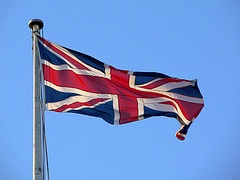 Science journalist Simon Singh announced on Friday that he is giving up his Guardian column to devote his time and energy to fighting the British Chiropractic Association's libel lawsuit against him and to campaigning for libel reform in the United Kingdom.
Science journalist Simon Singh announced on Friday that he is giving up his Guardian column to devote his time and energy to fighting the British Chiropractic Association's libel lawsuit against him and to campaigning for libel reform in the United Kingdom.
Singh's case has garnered much attention and has become a rallying cry for those seeking to reform Britain's notorious libel laws. The BCA sued Singh for libel in 2008 after he published an article in the Guardian calling some of its medical claims "bogus."
English libel law put the burden of proving truth on the defendant, even in lawsuits relating to matters of public concern, and last May an English court ruled that, in order to prevail, Singh would have to show that BCA was being "consciously dishonest" in promoting chiropractic cures for the ailments in question. Singh appealed the ruling—for information on a recent hearing before the Court of Appeals in London, click here.
Singh's farewell column is especially interesting as window into the personal side of defending against a libel suit. He stresses that it's not just about the legal fees and costs, which might someday be partially recovered, but also about the sacrifice in time and lost opportunities, which can never be:
The crippling and prohibitive financial cost of defending a libel case is often highlighted, but the equally terrible cost in terms of time and stress is rarely mentioned.
. . .
I am in the very fortunate position of having no employees, being a freelancer, having financial resources and having a very supportive wife. In any other circumstance, I cannot imagine fighting a libel action because of the enormous sacrifices involved.
I should have started writing a new book a year ago, but as yet I cannot even develop proposals and talk to publishers because I have no idea how the next year or so will develop.
The case could easily continue for another two years. If I win then I will not recover all of my legal costs, but (worse still) I will never recover the time I have dedicated to poring over legal documents.
Singh estimates that he has spent "44 solid weeks" on the libel case during the two years it has been pending and says the case has interfered with his ability to meet deadlines.
As poorly as it has turned out for Singh, the case has at least generated sufficient outcry to get British parliamentarians interested in reform, including recently proposing measures to discourage libel tourism. As our readers are no doubt aware, these reforms are (nearly) as important for U.S. publishers as they are for the English. Singh's column notes how the National Enquirer website no longer serves content to U.K. readers and how other major U.S. publishers are contemplating similar measures. And, as Professor Weiler's case illustrates, foreign laws can be a big problem for the little publisher too.
Hat tip to Ars Technica.
Photo courtesy of Flickr user Jerome Briot (http://www.flickr.com/photos/briot/), licensed under a CC Attribution-Noncommercial-No Derivative Works 2.0 Generic license (CC BY-NC-ND 2.0).




